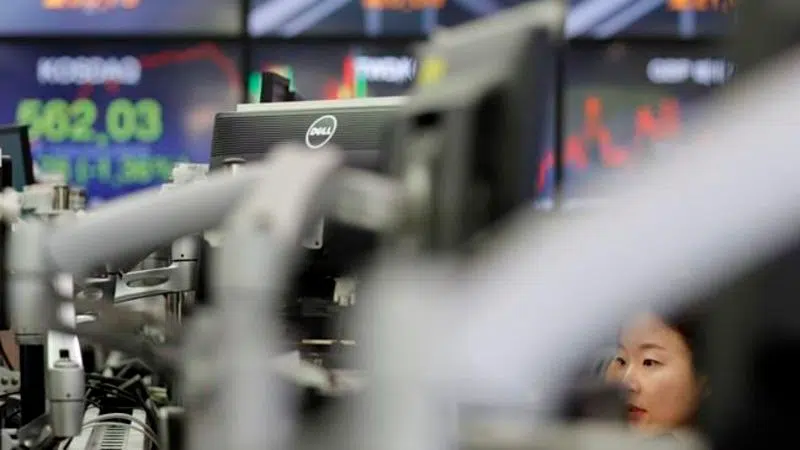
Global stocks rebound as China eases up on currency
LONDON — Stock markets turned higher on Tuesday as China stabilized its currency after allowing it to depreciate against the dollar in response to President Donald Trump’s decision to put more tariffs on Chinese goods.
The more buoyant tone follows a big sell-off Monday, when stocks were hammered after the Chinese government allowed its currency to depreciate against the dollar and was accused by the U.S. Treasury Department of being a currency manipulator. By lowering the value of the yuan, China can effectively offset the tariffs that Trump has imposed.
The fall in the yuan below the politically sensitive level of 7 to the dollar followed Trump’s threat of tariff hikes on an additional $300 billion of Chinese imports and led to Monday’s rout. Many stock indexes around the world recorded their worst day so far this year as fears mounted of an escalating trade war. In the U.S., the Dow Jones industrial average slumped 3%.
On Tuesday, the People’s Bank of China fixed the yuan at a higher rate than anticipated, a move that helped Asian shares pull off lows and encouraged investors in Europe and the U.S.


